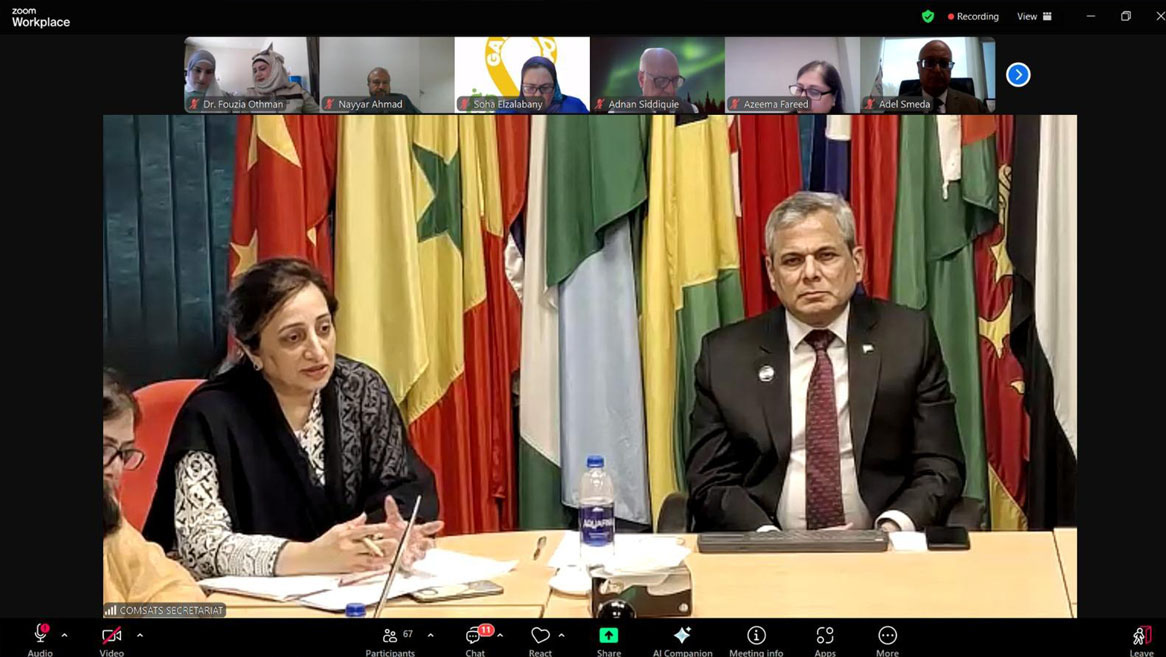COMSATS, in collaboration with its Centre of Excellence, COMSATS University Islamabad, organized an international workshop titled “Metagenomics-based Approaches for Viral Disease Surveillance,” under the ICGEB framework for Meetings and Courses in 2024. This four-day event took place from September 16-19, 2024, and was primarily funded by ICGEB.
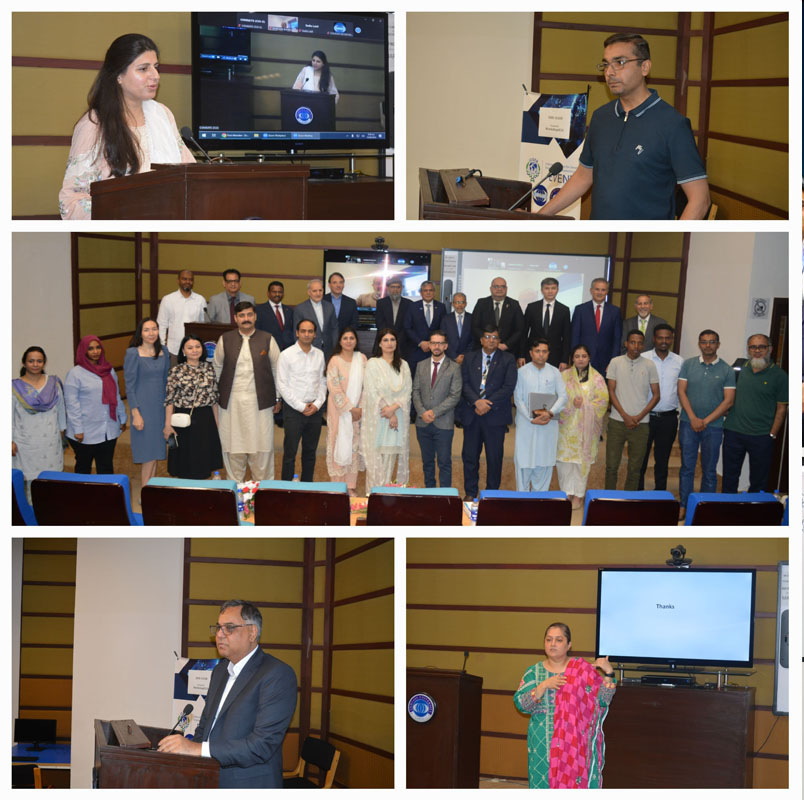
The workshop aimed to stimulate discussions and collaborations around the opportunities and challenges in using metagenomics for viral disease surveillance, particularly in modeling predictive pandemics and outbreaks. It sought to identify key scientific areas that could benefit from metagenomic analysis and emphasized the role of this approach at the intersection of metagenomics and public health research. The training enhanced the scientific competence of over 25 international participants from COMSATS member countries and 27 local researchers by providing both theoretical knowledge and hands-on laboratory experience in metagenomic techniques. The training also focused on translating metagenomics-based microbiome research into significant applications in genomic surveillance, equipping both early-career researchers and future students with lifelong learning skills.
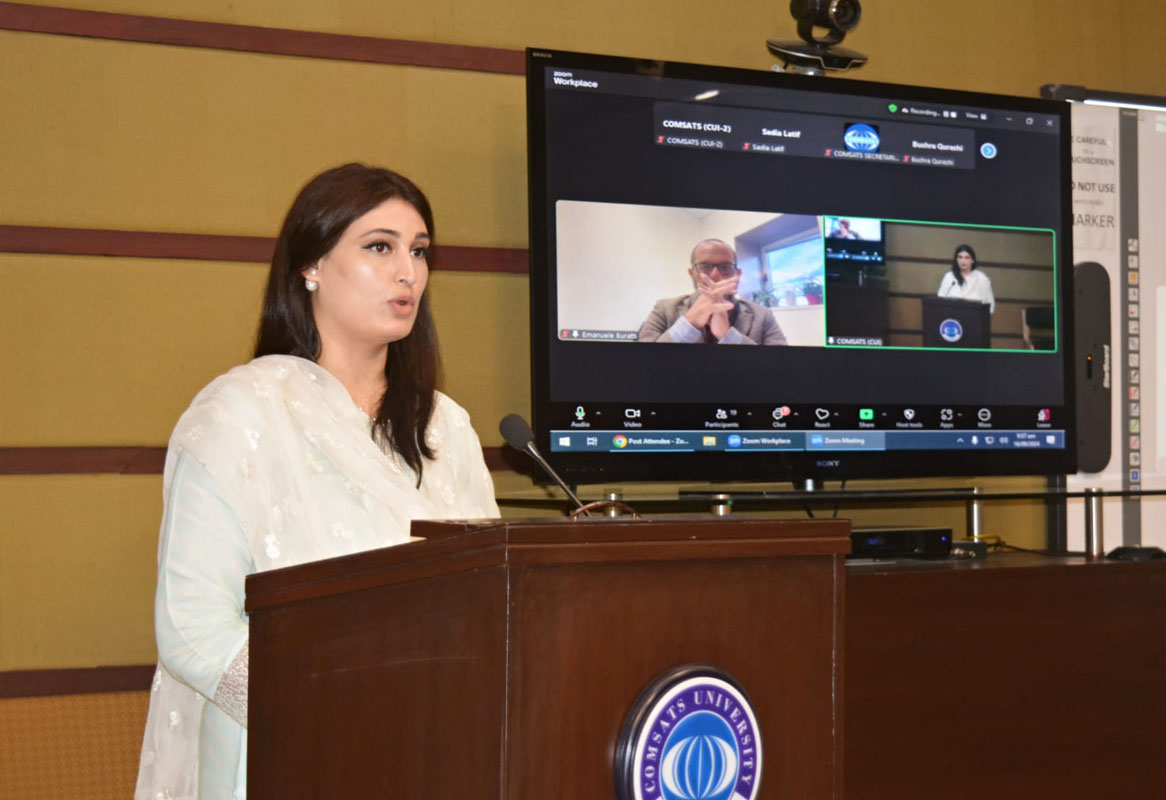
The inaugural session of the workshop was held on 16th September 2024. Dr. Khalid Maqbool Siddiqui, Minister for Science and Technology of Pakistan, the Chief Guest, in his message read out on the occasion by Dr. Mehwish Durani, Head COMSATS Centre for Climate and Sustainability (CCCS) emphasized the urgent need to respond to the rapid pace of emerging technologies. Honourable Minister highlighted biotechnology and bioinformatics as essential components in addressing challenges such as food security and healthcare. He further called for robust viral disease surveillance to prevent future pandemics, particularly in developing countries.
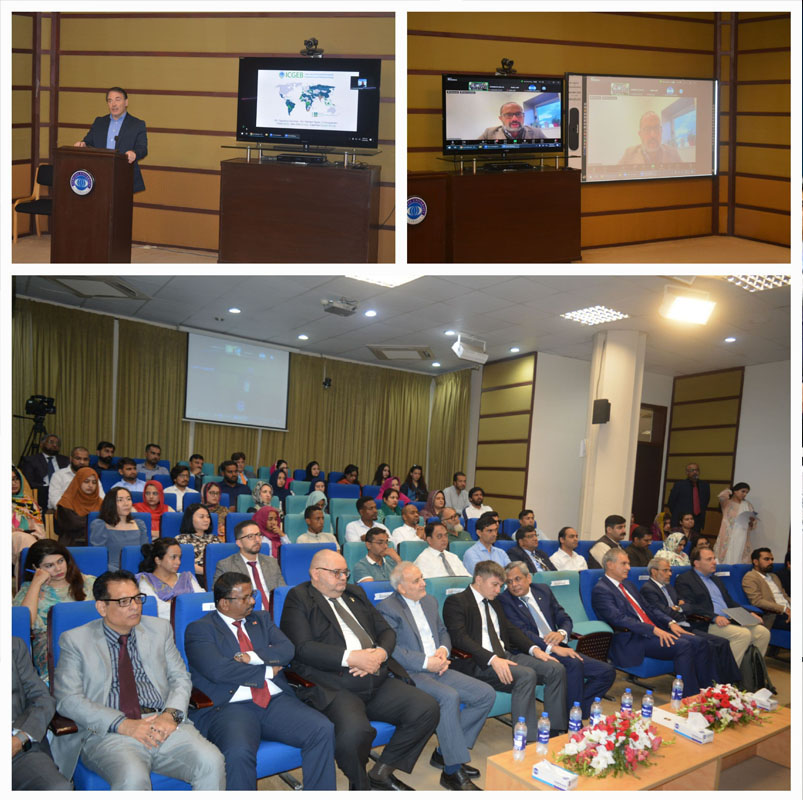
Dr. Emanuele Buratti, Scientific Coordinator at ICGEB, acknowledged ICGEB’s commitment to advancing biological sciences and innovation in low- and middle-income countries, commending COMSATS for organizing this impactful workshop.
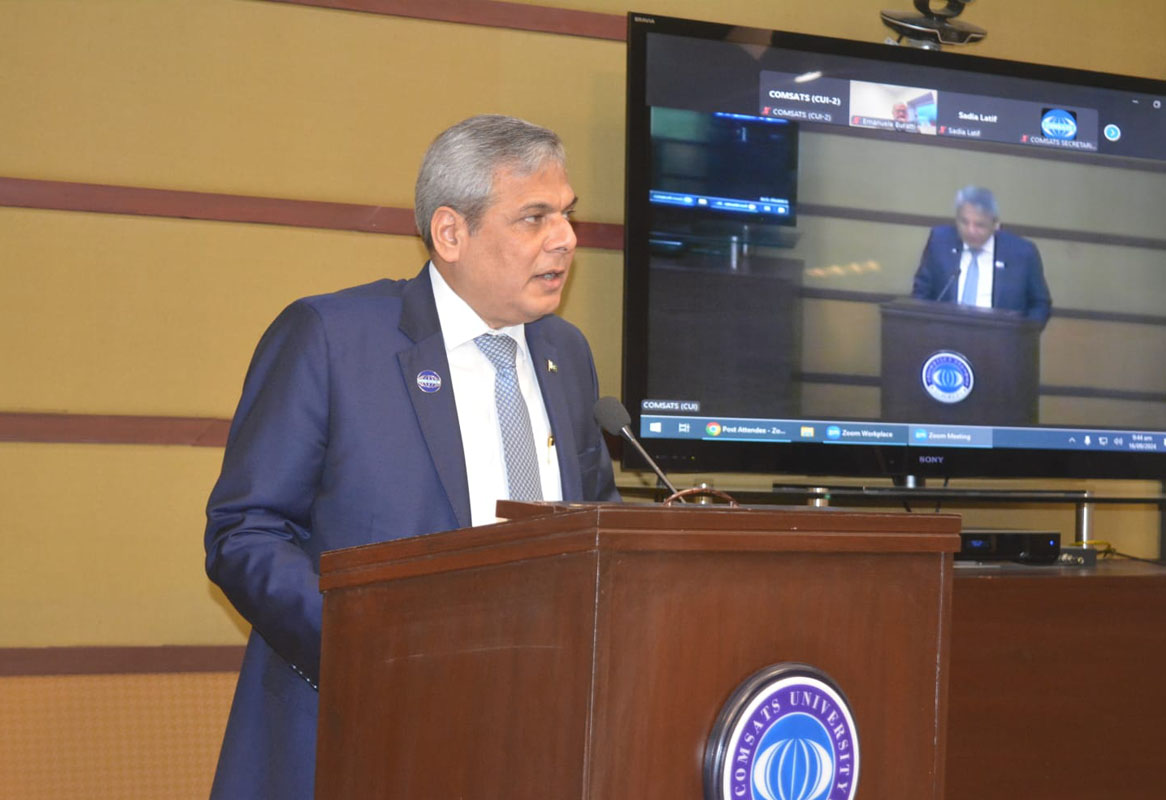
Ambassador Dr. Nafees Zakaria, Executive Director of COMSATS, addressed the global concerns surrounding emerging viruses and antimicrobial resistance, exacerbated by climate change and health inequities. He highlighted the pandemic’s role in accelerating innovations in science and public health governance and emphasized COMSATS’ efforts in fostering research and cooperation among its member states.
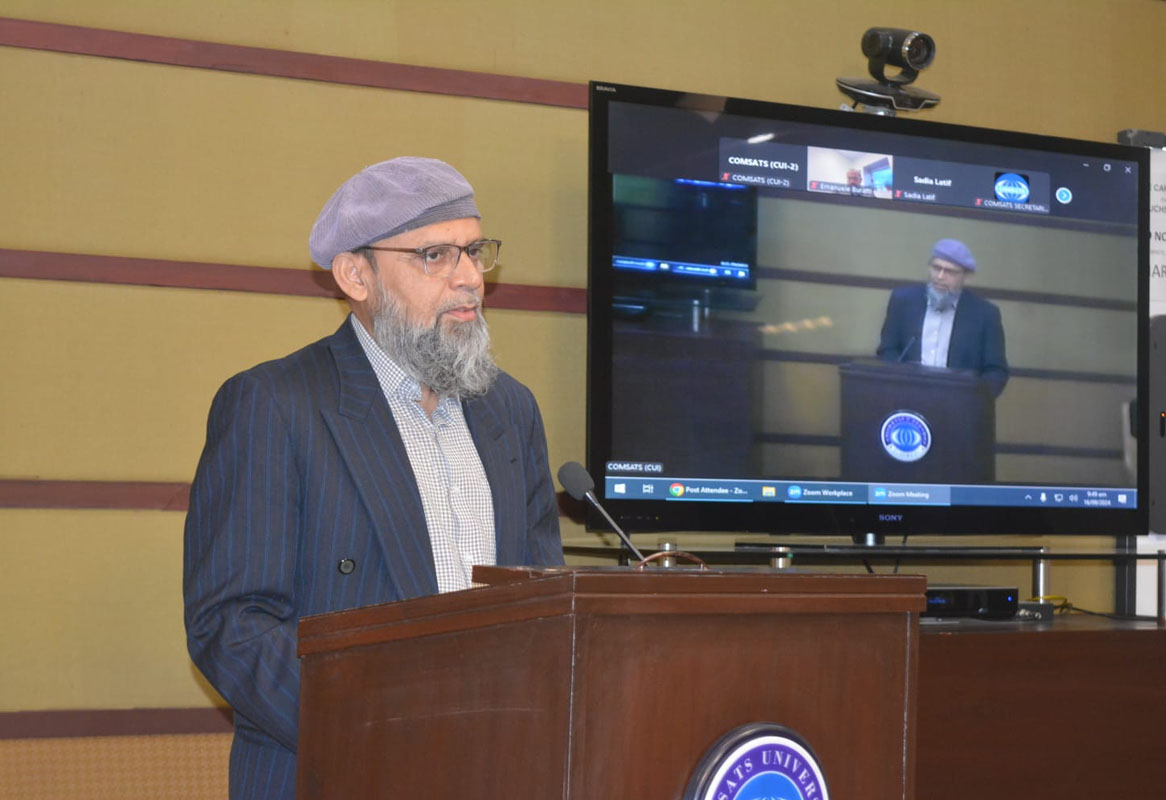
Prof. Dr. Sajid Qamar, Rector of CUI Islamabad, noted that with appropriate policy support, Pakistan could leverage bioinformatics to become a regional leader in life sciences and public health research.
This capacity-building workshop attracted experts from prestigious institutions such as ICGEB Italy, the Royal Scientific Society in Jordan, King’s College London, and the International Center for Chemical and Biological Sciences in Karachi. Designed as a hybrid event, it offered both in-person and virtual participation, making advanced training accessible to a wider audience. Trainees included early-career scientists and postgraduate researchers from Pakistan as well as international participants from Bangladesh, Ethiopia, Jordan, Kazakhstan, and Sudan.
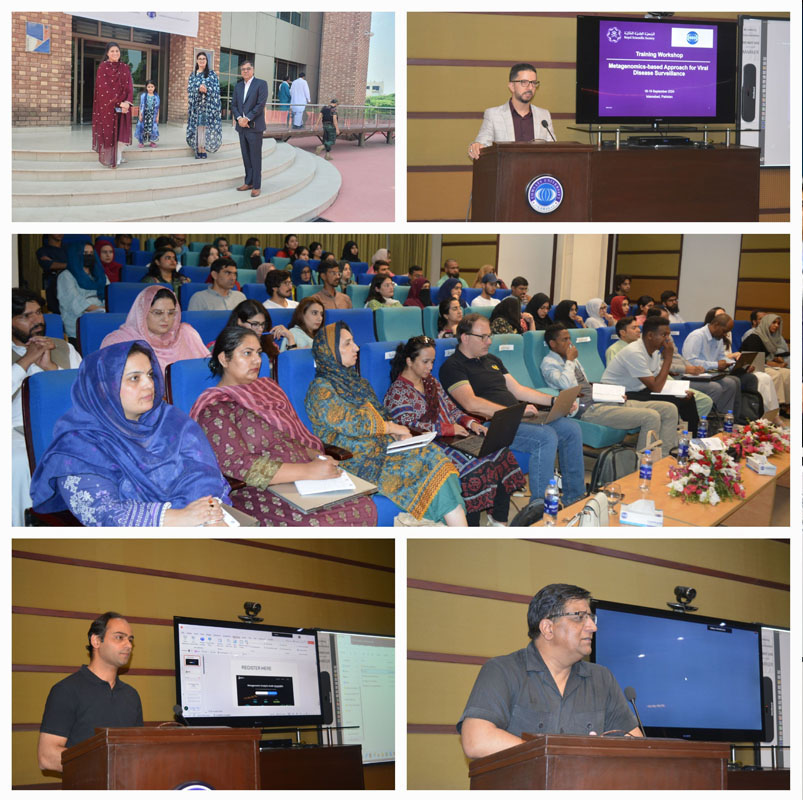
The workshop featured both theoretical and hands-on sessions aimed at enhancing knowledge and skills in advanced methods for real-time sequencing, data analysis, and bioinformatics, with a focus on integrating statistical, algorithmic, and multi-omics approaches for genomic surveillance and early pathogen detection. Seventy-five scholars from various countries in the Global South benefited from the workshop.

The closing session, held on September 19, was presided over by Prof. Dr. Shahzad Ali Khan, Vice Chancellor of the Health Services Academy. He remarked on the societal tendency to prioritize treatment over prevention and emphasized the need for preventive measures targeting entire populations or high-risk groups. He praised the workshop as a crucial platform for ongoing discussions and collaborations aimed at fostering a sustainable and resilient public health system.
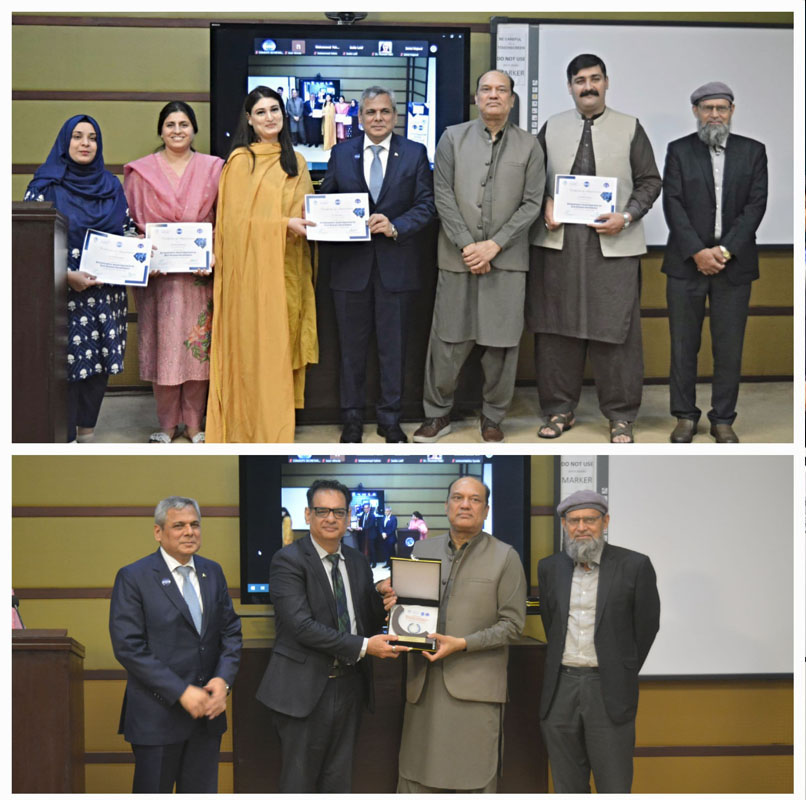
The event was attended by ambassadors, high commissioners, academics, scientific experts, representatives from UN agencies and international organizations, government officials, and prominent figures from various scientific fields.






